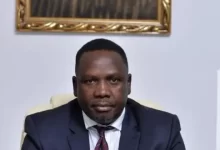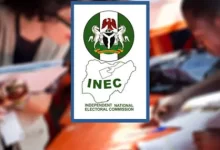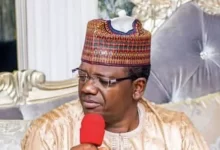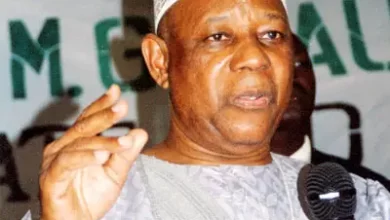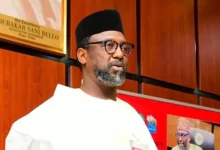Inter-Ministerial Briefing: How Akwa Ibom Is Redefining Responsive Governance
Breaking News Inter-Ministerial Briefing: How Akwa Ibom Is Redefining Responsive Governance


Breaking News Inter-Ministerial Briefing: How Akwa Ibom Is Redefining Responsive Governance
By Adebiyi Philips Between the early hours of Wednesday 15, March and evening of Thursday 16, Akwa Ibom was among the top Twitter trends in…
Between the early hours of Wednesday 15, March and evening of Thursday 16, Akwa Ibom was among the top Twitter trends in Nigeria. Not that it’s a new thing for the state or was it totally strange considering that we are in an election season. Out of curiosity, I had to check out the reason for the social media buzz and to my biggest surprise, it was for one of the best reasons there is especially as the current administration will be exiting in few months to usher in a new administration. It turns out that the state government, as part of its efforts to engage with the people and communicate its achievements within the last seven years to them, is hosting an inter-ministerial briefing where all the ministries are expected to give account of themselves.
Novel, you can say. Recalled that while trying to woo the people for votes during his campaigns in 2015, Governor Udom Emmanuel had made promises to the people of the State. Few months to the end of the administration, Mr Udom Emmanuel is coming back to the people for assessment. Little wonder the inter-ministerial briefing is tagged “Tracking the Promise”. Since assuming office in May 2015, Governor Emmanuel has been very intentional about making Akwa Ibom feel the impact of his administration and he has done this by ensuring that they have a sense of belonging. In my candid opinion, there is absolutely no better way to start and finish a government than making promises to the people at the beginning and giving the people opportunity to access how the promises have been fulfilled at the end of the administration.
In a publication on Responsive and Accountable Public Governance, United Nations posited that responsive public governance requires responding efficiently and effectively to people’s real needs. “This entails a resolve to anchor policies, strategies, programmes, activities and resources, taking into account people’s expectations, with particular attention paid to local variations and ambitions”. One of the key highlights of the Udom Emmanuel administration has been his timely and profound responses to the needs and aspirations of Akwa Ibom people. In between these seven years, Mr Emmanuel has made several stand-out efforts in responsive leadership.
From what I have gathered, the inter-ministerial briefing was in response to the demand by Akwa Ibom people for an all encompassing and accommodating interface with the government. The sincerity of the administration can be clearly seen in the composition of participants which were drawn from media, the religious and traditional institutions, civil rights groups, labour and pressure groups, professional bodies, NGOs, etc. Elsewhere, such event in an election time would be used for PR stunts by restricting the audience to only loyalists of the government.
From my vantage point, the critical elements of a responsive leadership are inbred in the Udom Emmanuel’s administration. As a resident of Lagos State, I have witnessed first-hand multiple incidents that is deserving of the state governor or government agencies engaging the people in a dialogue. Alas, not even a consideration was made. One of Nigeria’s finest communication lecturer and currently Dean, Faculty of Media and Communication Studies, University of Uyo, Prof Peter Esu, in his teaser Governance, Transparency and Responsibility at the inter-ministerial briefing, rightly pointed out that the Udom Emmanuel’s administration should be commended for being responsive.
The erudite lecturer was of the opinion that for a representative government which we are practising in this part of the world to thrive, there must be a common ground for the government and the governed to interface. I agree totally.

